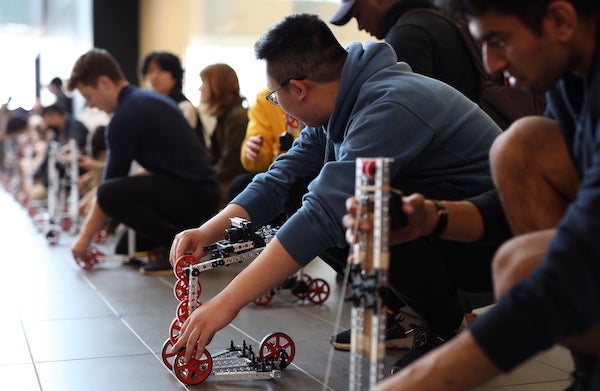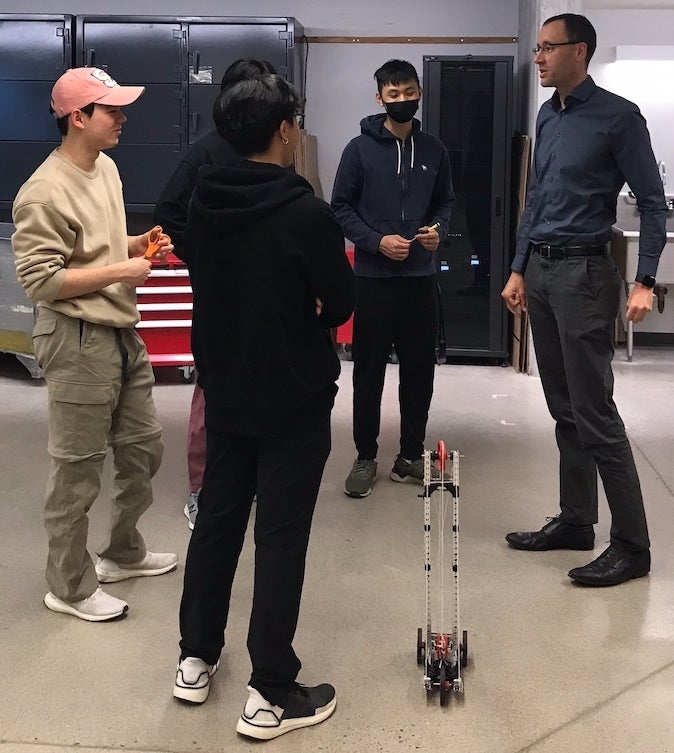The Pearl Sullivan Engineering IDEAs Clinic recently hosted an Engineering Design Day activity for first-year mechanical engineering students that focused on gravity cars.
With the support of Faculty members and industry partner Magna International, 26 student teams designed and built their own energy conversion systems to power their vehicles along a straight path to a location two meters from the starting position within a fixed time.

First-year mechanical engineering students line up their carts to compete in a Design Day challenge.
The vehicles – small carts fabricated with Tetrix, a modular building system – had to source their power from the potential energy stored in a 1 kg mass and participate in three challenges that assessed how close they got to the two-meter mark, how quickly they got there and how far they could go beyond the mark.
Julian Knutzen, a senior manager in Magna’s advanced technologies division, attended the Design Day and helped the students troubleshoot their designs.

Julian Knutzen from Magna with first-year mechanical engineering students at a Waterloo Engineering Design Day.
“The challenges were collaborative rather than competitive and encouraged the students to tinker with and test their designs in practice,” said Knutzen. “I saw some remarkable designs, but the best-performing vehicles were the ones following a straightforward approach, which is an important learning for future mechanical engineers. Finding simple solutions for complex problems is an important skill.”
Since 2017, Magna, a mobility technology company, has employed over 100 Waterloo Engineering students through the University’s co-operative education program as well as provided the Faculty with financial support for research.
The company’s commitment to engineering excellence now includes sponsorship of the IDEAs Clinic to ensure that student innovation can flourish.
“The IDEAs Clinic was established to give students a much-needed space to apply what they’re learning in the classroom to solve real problems,” said Chris Rennick, Engineering Educational Developer for the IDEAs Clinic. “Thanks to industry support from our partners such as Magna, we can host Design Day challenges and give future engineers an employment edge by honing their skills for the world of work.”